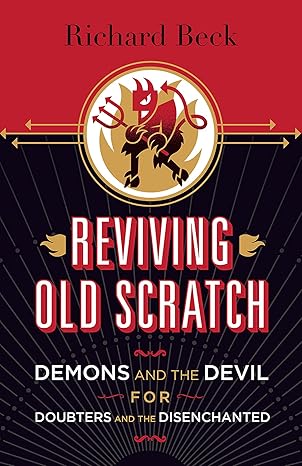This Tuesday, we resume our discussion of Richard Beck’s book Reviving Old Scratch: Demons and the Devil for Doubters and the Disenchanted. Please read Chapter 13, “The Lucifer Effect,” and Chapter 14, “The One Who Holds the Power of Death.” In Chapter 13, Beck explores the question of “If Christianity is a rebellion against the world, what exactly are we rebelling against?”
The No Asshole Rule: (pp. 133-139)
Beck begins this chapter by writing that 1 Corinthians 13 can be summarized as saying “Don’t be an asshole.” p.133. Beck discusses the book “The No Asshole Rule: Building a Civilized Workplace.” In the book, Stanford Business professor Dr. Robert Sutton discusses the secret to any successful organization – don’t hire or tolerate assholes in your organization. The central focus of Sutton’s book is how superiors treat subordinates in the workplace and how hierarchy and power can poison basic human kindness and respect. Sutton has two tests to evaluate whether a person fits the description: (1) After talking to the alleged asshole, does the subordinate person feel humiliated or belittled and (2) does the alleged asshole aim his venom at people who are less powerful than himself. Sutton writes, “‘The difference between how a person treats the powerless versus the powerful is as good a measure of human character as I know.’” p.136. Becoming an asshole is the lucifer effect.
Power Dynamics: (pp.136-139)
Throughout Scripture, we are told to “not be conformed to the patterns of this world.” Rom. 12:2. For this world is the dominion of Satan. John 12:31. Therefore, what is the satanic pattern of this world, and what does non-conformity to it look like? The answer to this question lies in the story of Mrs. Zebedee, where Jesus teaches: “You know that the rulers of the Gentiles lord it over them, and their great ones exercise authority over them. It shall not be so among you. But whoever would be great among you must be your servant.” Matt. 20:25-26. The pattern of the world is one of asserting domination and power over others, whereas resistance is characterized by mutual servanthood.
We have also observed this same understanding in previous discussions of the household codes in Ephesians 5 and 1 Peter 3. There, we looked at how these codes differ from their Greco-Roman counterparts. Aristotle and others imposed duties only on the underlings (slaves, children, and wives), centered on unwavering obedience. In contrast, the biblical household codes imposed duties on those at the top of the hierarchy (masters, husbands, fathers) as well. The New Testament explicitly restrains the exercise of power over others.
Spiritual warfare is a struggle for biblical power dynamics, not worldly ones. This struggle, as Beck points out, is fought within ourselves every day. It is inherent in our fallen human nature to want to rise above everyone else.
Harpagon v. Kenosis: (pp.139-143)
In the Christological Hymn in Philippians 2:6-11, Paul writes that Jesus “did not regard equality with God as something to be grasped.” v.6.The Greek word for “grasped” is harpagon. This word is a military term meaning to plunder or to seize. This word describes the act of powerful individuals stealing from the weak. The phrase “equality with God” was used only of Caesar, and therefore, Paul is telling us that Jesus could have seized power from Caesar but chose not to. (This is the offer Satan made to Jesus in the desert. Luke 4:6.)
The alternative to harpagon is kenosis. Again, Paul continues, “but emptied himself, taking the form of a slave.” v.7. The word “emptied” is kenosis, which means to impoverish or make powerless. Therefore, Jesus did not seize political power when he had the opportunity, but instead relinquished the power he did have. Jesus rejected seizing power over others in favor of giving it up and becoming a slave to all.
In our spiritual warfare, we are called to do the same. We are called to live a life of Kenosis and not Harpagon. We are called, as Beck says, to emulate Jesus’ washing of the disciples’ feet in John 13. We resist the satanic pattern of the world, but having a towel around our waist.
Dinner is at 6. The menu is July 4th a la Kim Perl. Discussion about 6:45. Compline at 8. Hope to see you here!
I cannot accept your canon that we are to judge Pope and King, unlike other men, with a favourable presumption that they did no wrong. If there is any presumption, it is the other way against holders of power, increasing as the power increases. Historic responsibility has to make up for the want of legal responsibility. Power tends to corrupt and absolute power corrupts absolutely. Correspondence from Lord Action to Bishop Creighton, April 5, 1887.

